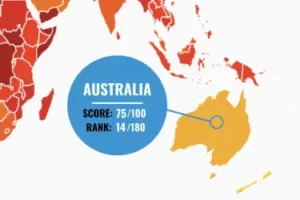Description
Dive into strategies to redefine Australia’s position globally for greater sovereignty, expanding partnerships, & ensuring national autonomy in the world.
Introduction
Australia is at a critical juncture, redefining its role on the world stage to pursue greater independence and sovereignty. Amidst evolving global dynamics, there is a pressing need to reassess traditional alliances and forge new relationships that better serve Australia’s long-term interests. This comprehensive analysis outlines strategic initiatives for Australia to enhance its global standing and assert its autonomy in international affairs.
Diversifying Partnerships for Enhanced Global Presence
Expanding Trade and Cultural Exchanges
In the face of changing global economic conditions, Australia’s strategic interest lies in broadening its international partnerships. Expanding trade relations beyond traditional allies such as the United States and Europe to include burgeoning markets in Asia, Africa, and Latin America can diversify economic risks and unlock new opportunities. Cultivating these relationships through cultural exchanges and mutual economic ventures will not only enhance Australia’s diplomatic reach but also contribute to a more balanced and resilient economy.
Building Multifaceted Relationships

To truly enhance its global presence, Australia must develop multifaceted relationships that go beyond economic exchanges. These should include collaborations in education, technology, and environmental conservation, which can foster deeper understanding and long-term partnerships. Engaging with international partners on shared challenges like climate change and cybersecurity can also elevate Australia’s status as a global leader and innovator.
Strengthening National Defence and Cybersecurity
Investing in Domestic Capabilities
National defence and cybersecurity are foundational pillars of Australia’s sovereignty and resilience. As geopolitical dynamics evolve and technological advancements accelerate, Australia must prioritize the modernization of its defence forces and the enhancement of its cybersecurity infrastructure. This includes buying advanced defence systems, upgrading outdated equipment, and fostering innovation in artificial intelligence, quantum computing, and cybersecurity protocols.
Developing domestic capabilities is critical to reducing reliance on foreign suppliers and technology. Building a robust local defence industry, with significant investment in research, development, and manufacturing, creates jobs and ensures that critical systems are still under Australian control. A strong domestic focus also enhances Australia’s ability to respond swiftly to regional threats and emerging challenges, such as cyberattacks, espionage, and hybrid warfare.
Reducing External Dependencies
A sovereign defence strategy requires minimizing dependence on external entities, such as multinational corporations and foreign military bases. While alliances can strengthen regional security, over-reliance may compromise Australia’s autonomy in decision-making and responses. By increasing investment in Australian-owned defence contractors, expanding local R&D efforts, and collaborating with universities to train the next generation of engineers and cybersecurity experts, Australia can ensure that its military capabilities align with its unique strategic needs.
Additionally, reducing external dependencies includes reassessing foreign military bases on Australian soil. Prioritizing self-reliant defence strategies strengthens Australia’s control over its security decisions while signalling its commitment to regional stability.
By embedding these principles into national policy, Australia can fortify its defence and cybersecurity frameworks, achieving long-term sovereignty and resilience.
Fostering Economic Independence through Innovation
Driving Growth with Local Innovation and Infrastructure
Economic independence is fundamental to sovereignty. Australia should support its local industries and innovation ecosystems to drive economic growth. Investing in sectors like renewable energy, digital infrastructure, and advanced manufacturing can create jobs, stimulate economic activity, and reduce reliance on imports. This focus on local innovation can also help Australia lead globally in critical technologies of the future.
Encouraging Entrepreneurship and Technological Advancements\
Promoting entrepreneurship and continuous technological advancement is key to supporting economic competitiveness. Policies that support startups, research institutions, and SMEs in high-tech industries will foster an environment of innovation and creativity. This approach not only supports economic growth but also positions Australia as a leader in emerging technologies on the global stage.
Amplifying Australia’s Voice in Multilateral Forums
Global Advocacy for Peace and Stability
Australia’s active engagement in multilateral organizations is crucial for amplifying its voice on global issues. By taking part in discussions and leading initiatives on peace, stability, and sustainable development, Australia can influence international policies and practices in ways that reflect its values and interests.
Balancing International Relations
In navigating its international relations, Australia must balance its strategic interests with its commitment to global cooperation. This includes playing a mediating role in conflicts, leading humanitarian efforts, and advocating for fairer international trade practices. Such actions not only enhance Australia’s global reputation but also contribute to a more stable and peaceful world.
Encouraging Public Dialogue on Foreign Policy
Inclusive Policy Formation
For Australia’s foreign policy to be truly reflective of its national interest, it must be shaped by a broad spectrum of voices. Engaging the public, academics, and industry leaders in the policy-making process ensures that diverse perspectives are considered. This inclusive approach strengthens the policies’ legitimacy and aligns them more closely with the public’s aspirations.
Enhancing Transparency and Public Trust

Transparency in foreign policy is essential for building and supporting public trust. By openly communicating the motivations, goals, and outcomes of foreign policy decisions, the government can mitigate misunderstandings and foster a sense of ownership and support among Australians.
Conclusion and Call to Action
As Australia navigates its path toward greater global autonomy and sovereignty, the strategies outlined here are critical. By diversifying partnerships, strengthening defence capabilities, fostering economic independence, and actively taking part in global forums, Australia can secure its position as a resilient and influential global player. We encourage you to join this important conversation.
Question for Readers
What innovative strategies should Australia pursue to enhance its sovereignty and global standing?
Share This Article
Share your thoughts and this article with your network. Engage with us on social media to help shape a sovereign future for Australia. Your insights are invaluable as we steer through these transformative times.
References:
ASPI: https://www.aspi.org.au/
Lowy Institute for International Policy: https://www.jstor.org/publisher/lowyiip
Australia-China Relations Institute: https://www.uts.edu.au/acri/research-and-opinion/analyses/good-bad-and-ugly-australian-defence-and-strategic-policy-uncertain-future-0
IMF Reports: Economic and political strategies employed to assert their sovereignty and reduce dependency: https://www.imf.org/en/Search#sort=relevancy
The first failed empire of the 21st century: https://www.jstor.org/stable/20097942
America Is Headed Towards Collapse: https://www.theatlantic.com/ideas/archive/2023/06/us-societal-trends-institutional-trust-economy/674260/
Is America a ‘failing state’? How a superpower has been bought to the brink: https://theconversation.com/is-america-a-failing-state-how-a-superpower-has-been-brought-to-the-brink-139680
Australia would be among the biggest economic losers from a new cold war: https://www.uwa.edu.au/news/article/2022/april/australia-would-be-among-the-biggest-economic-losers-from-a-new-cold-war#:~:text=Australia’s%20(mainly%20commodity)%20export%20prices,the%20US%20dollar%20(20%25).
The Decline and Fall of the American Empire: https://www.cbsnews.com/news/the-decline-and-fall-of-the-american-empire/
Empire, Imperialism, the United States and Australia: https://aph.org.au/2017/11/empire-imperialism-the-united-states-and-australia/
AUKUS: A marker of imperial decline: https://independentpeacefulaustralia.com.au/wp-content/uploads/2022/10/404-Cameron-Leckie.pdf
Australian’s Rulers Know They Need American Imperialism to Dominate the Pacific: https://jacobin.com/2023/01/australia-imperialism-us-foreign-policy
America: Australia’s Dangerous Ally: https://deepresource.wordpress.com/2015/01/02/america-australias-dangerous-ally/


Thank you for your comment. To get change in this direction requires people power. Australia needs to be governed in our own interests and we should not allow foreign governments telling us what we should or should not do.
Brilliant! this is EXACTLY the direction to which Australians need to turn their thinking!